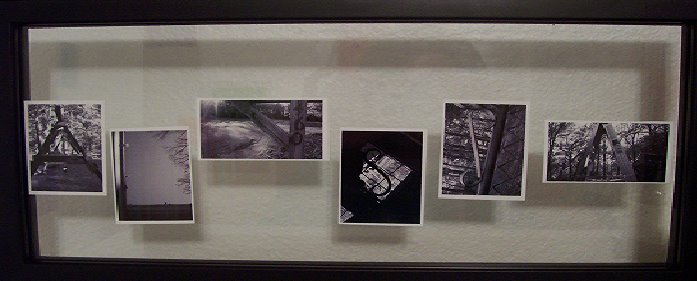Confession: Church did not teach me how Christians should act.
Church -- at least, the two churches I grew up in -- modeled for me that when two Christians disagree, one of them is wrong and needs to repent so the other one can lord their mistakes over them and call it forgiveness.
I learned that the best response to conflict is to quit and start another church two miles away and force people to
choose whom they like best pray about where God is leading them.
I discovered that the key to avoiding these kinds of conflicts is to seem pulled together and in control. One easy way to do that is to volunteer to give announcements at youth group. Anyone on stage must have things all figured out, right?
Especially, I saw that the more you respect and trust a leader, the more devastating it is when they fail or they turn on you, and that those relationships are irreperable.
There were a few bright spots -- Heartbeat in seventh grade comes to mind, as well as some good conversations with youth leaders -- but those were the exceptions. Mostly, I collected compelling reasons not to trust people.
I didn't unlearn all of this mistrust until I started doing improv at Wheaton. I saw that if people trust one another, it's possible for them to be honest about their struggles, forgive one another's mistakes, and help one another grow.
---
This is another one of my favorite books.
 |
| You can buy it here. And you probably should. |
Wells writes:
[One common] assumption is that improvisation is trivial and self-indulgent. This is perhaps because it is associated with humor and the ephemeral, and also because it can create intensely committed communities that seem united by no substantial goal, only the formal means of interacting. ... Underlying it is the assumption that Christian ethics is an intensely serious, somewhat earnest, and decidedly difficult discipline, weighing matters of daunting substance, and only to be entered reverently, soberly, and after serious thought. In this perspective, improvisation sounds suspiciously like a joke, an artifice -- an insult. Such a view risks being more solemn than God.
Throughout the Christian drama there is joy and playfulness. .. The church can afford to concentrate on details, because God has given her time to follow him. Taking time for the trivial is therefore a sign of faith, not foolishness. The church can afford to take the risk of the humorous and the ephemeral, because the joke is God's and the laughter is divine.
---
Some of my improv friends gave me rides to their
church, where I found a community of people who don't seem to be pressuring me to have everything together or to agree with them about every tiny detail. They treat seasons of celebration and joy with as much importance as those of waiting and repentance. I learned that church didn't have to be as constantly traumatic as the churches I'd known. I've now been a member for more than five years.
I know I am amazingly blessed to be part of a church that values the differing gifts of its members, even if those gifts are in the arts. Our artists at Church of the Resurrection write music, yes, but also stage dramatic interpretations of scripture, paint altar pieces, and
film comedic announcements. I love it all.
So when I wanted to teach an introductory improv class as a ministry through Rez, the church told me to go for it. I'm SO glad that five wonderful ladies decided to take a risk and play with me these past few weeks. I am not a preacher, nor do I have extraordinary gifts of healing or tongues or evangelism or any of those big impressive ones. But I know God has met me through play more than in any other way, and play is something I can teach.



